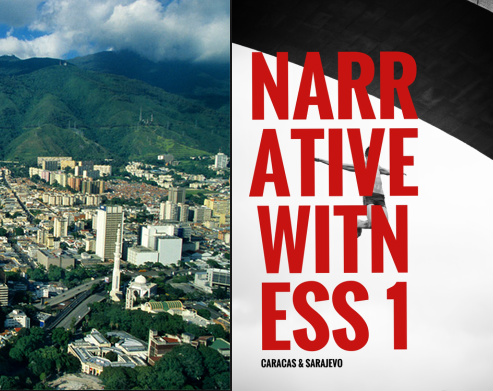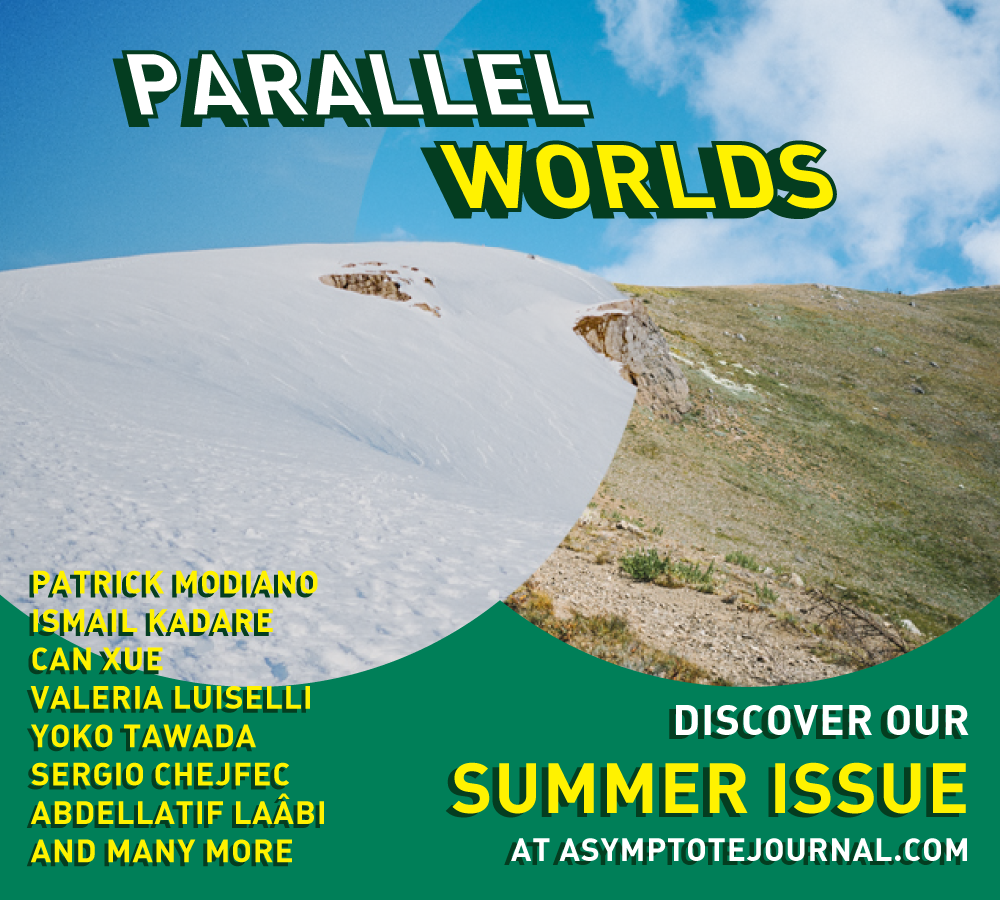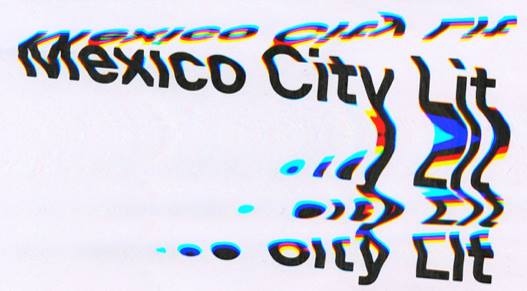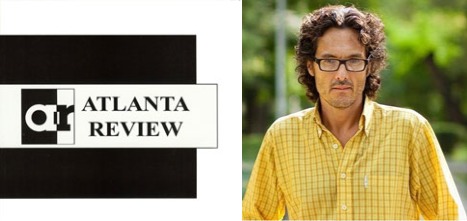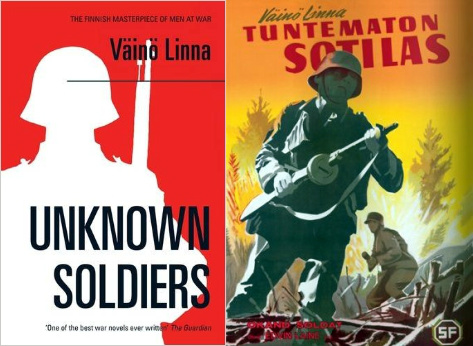I interviewed Alex Cigale, guest editor for the Russia issue of the Atlanta Review, to pick his brain about the editing process, the special issue, and the state of Russian poetry at-large.
Alex Cigale (former Central Asia editor-at-large for Asymptote!) has collaborated with the editors of the anthologyCrossing Centuries: the New Generation in Russian Poetry (2000), and more recently, the online Twenty First Century Russian Poetry (Big Bridge 16, 2014). Independently, he has presented a score of contemporary Russian poets to Anglophone readers. This year, Cigale was the recipient of an NEA in Literary Translation for his work with poet of the St. Petersburg philological school, Mikhail Eremin.
The Atlanta Review is known for its long-established and respected annual contest, offering publication in each of its fall issues, with a $1,000 top prize and 20 publication awards for finalists (including 30 merit awards for semi-finalists). In its 20-year history, it has published a long list of established poets, including Seamus Heaney, Rachel Hadas, Maxine Kumin, Stephen Dunn, Charles Wright, Billy Collins, Derek Walcott, Paul Muldoon, and so on.
PN: What did the Atlanta Review ask from you for its Russia Issue? How did you approach the editorship and solicit contributions?
AC: My directions were quite open: curate an 80-page section of contemporary Russian poetry. In every Spring issue, the Atlanta Review includes an international feature. In recent years, it had shone a spotlight on international hotspots (Pakistan, Afghanistan, Iran, etc.) as well as on Anglophone or partly-Anglophone nations in the news (India, Ireland, and Scotland, the latter forthcoming in 2016).
While each is planned two years in advance, the editorial phase itself is quite brief: in my case, I only had this past late fall/early winter to work on the curation, so its contents were largely determined by what unpublished work in translation was available at the moment. As I noted in my introduction, above all else, the issue is a “slice of life”—what (primarily American) translators of Russian poetry are working on right now. The world of Russian poetry translation is a fairly small community, so I was able to put out early word of the issue on social media and correspond with nearly each translator personally to discuss their projects. READ MORE…

